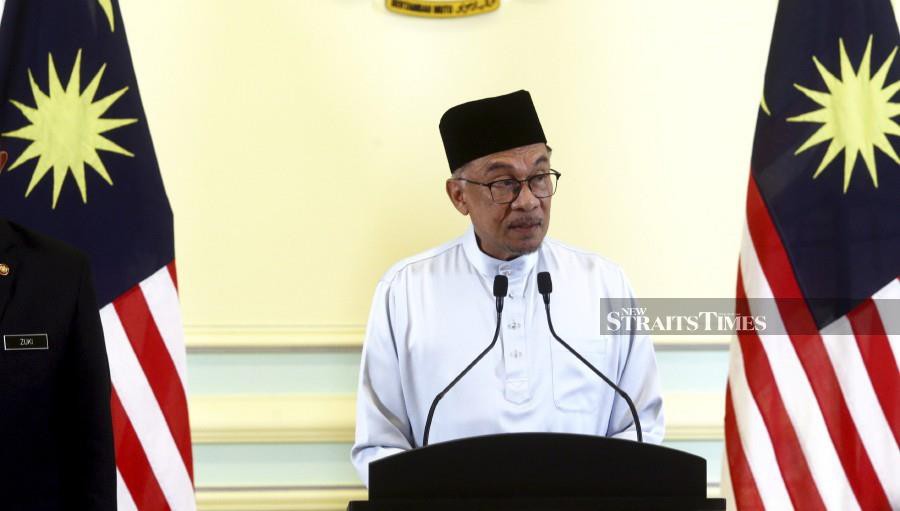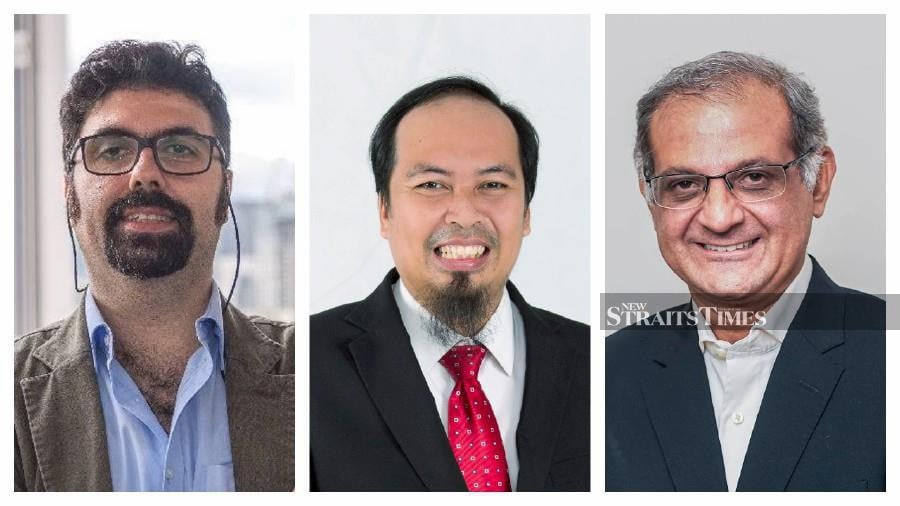
KUALA LUMPUR: While Datuk Seri Anwar Ibrahim is capable of helming the Finance Ministry, economists believe the prime minister should have appointed a second finance minister to assist him with the portfolio.
Centre for Market Education chief executive officer Dr Carmelo Ferlito said Anwar, as the head of a unity government, had the additional burden of building bridges between his once-rivalling coalition partners.
"Having a second finance minister can help Anwar manage the portfolio more effectively.
"I was disappointed that (former second finance minister) Datuk Seri Johari Abdul Ghani was not appointed to the new cabinet. He was probably the best card that Barisan Nasional (BN) had to play, given his profound understanding of the economy."
Meanwhile, Associate Professor Dr Ahmed Razman Abdul Latiff was confident that Anwar's decision to lead the finance ministry would bode well with investors and boost market sentiments.
Razman, an economic analyst at Putra Business School, said Anwar had earned a strong reputation among the international business community during his stint as the finance minister for eight years, from 1991 to 1998.
During his tenure, Anwar was named the Finance Minister of the Year by Asiamoney in 1996, and Euromoney ranked him as one of the top four finance ministers at the time.
However, Razman said, investors might not feel the same about Anwar's immediate predecessor, Tengku Datuk Seri Zafrul Tengku Abdul Aziz's return to the cabinet as the new international trade and industry minister.
Given Zafrul's background as a banker, Razman said, the business community might consider him "less friendly" to the business community.
Echoing similar concerns, Carmelo said Zafrul allowed the statutory debt ceiling to grow, approved expansive fiscal policies and sanctioned multiple Employees Provident Fund (EPF) withdrawals under his watch.
All of these, Carmelo said, pushed the country towards inflation.
"Furthermore, Zafrul did not stop restrictive measures, such as labour market interference and price ceilings, that worsened the economic landscape.
"So I cannot see Zafrul's added value as the international trade and industry minister, given that Malaysia's investment ecosystem has been deteriorating over the last three years."

Nevertheless, Razman said, Anwar could reinvigorate the investment climate by rolling out alternative financing instruments that did not impose additional financing interest, such as widening access to equity financing.
"The government should also give priority and offer incentives to local businesses to undergo a digital upgrade.
"Assist them to explore new markets through the Regional Comprehensive Economic Partnership and the Comprehensive and Progressive Agreement for Trans-Pacific Partnership."
Razman said Anwar must set distinct roles for himself, Zafrul, and Economy Minister Rafizi Ramli to prevent overlapping of roles among the trio.
"Anwar should focus on domestic matters, such as tackling the cost of living and the rising prices of goods.
"Zafrul should be working on ushering in more high-quality investments.
"Rafizi should focus on monetary reforms. With his extensive corporate experience, good grasp of technology and proficiency in data management, Rafizi fits the role."
Carmelo, meanwhile, urged Anwar to restructure the Economy Ministry and assign it a frontline role in coordinating policy implementation across ministries.
"For example, if the International Trade and Industry Ministry implements a special scheme to attract foreign direct investments but the Human Resources Ministry makes it difficult to hire expats and foreign workers, Rafizi can step in to coordinate and resolve the conflict."
Juwai IQI Global chief economist Shan Saeed stressed the need to have a consistent policy framework and ensure macroeconomic stability to draw in investors.
"After three quarters, Malaysia's average gross domestic product (GDP) growth recently hit 9.36 per cent — the highest in the Asean region. We expect the GDP momentum to stay strong for the last quarter as well.
"The new administration must focus on keeping domestic demand strong, boosting trade and commerce, and having a competitive and productive workforce.
"If they can do that, then Malaysia is perfectly poised to maintain a GDP growth rate of more than seven to eight per cent." - NST



No comments:
Post a Comment
Note: Only a member of this blog may post a comment.